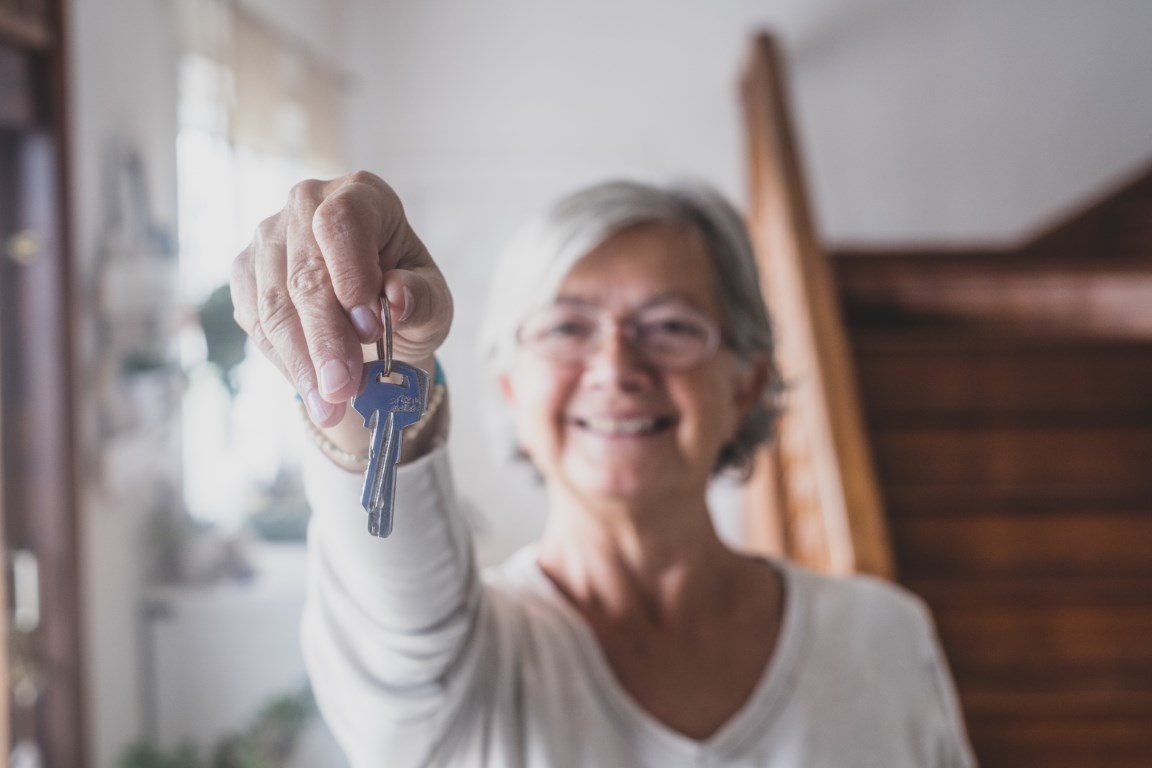Housing for Seniors Based on Income
Growing older is a natural part of this thing we call life, and it is an experience that comes with both upsides and downsides. For instance, as we age, we gain the wisdom, experience, and insight that we wish we had in our twenties. But on the other side of that coin is the fact that older adults are often forced to live on limited incomes, and this can affect everything from their lifestyle to where they live.
One of the biggest challenges for seniors living on fixed incomes is the fact that their housing costs can eat up a sizeable portion of their monthly income. As a result, finding affordable housing for seniors based on income takes on a greater importance when entering our golden years.
Table of Contents
Finding Low-Income Senior Housing Through HUD

The U.S. Department of Housing and Urban Development (HUD) offers resources that can help seniors find affordable housing communities. The Section 202 Supportive Housing for the Elderly program provides low-income housing to seniors who are over 62 and have limited incomes.
When seniors live in one of these affordable housing communities, their rent is based on their adjusted gross income. This ensures that no more than 30% of a resident’s adjusted gross income is used towards paying their rent. And since there are regulations in place that require that each community conform to meet the basic needs of the elderly and disabled, most Section 202 housing properties will offer the following:
- Fire Alarms
- Smoke Detectors
- Non-Smoking Facilities/Residences
- On-Site Mail Delivery
- Elevators on Multi-Floor Facilities
- Wheelchair Accessible Common Areas
- Wheelchair Width Doors
- Temperature Controls at Wheelchair Level
This program also requires a community to provide several“necessary” services for all residents. These necessary services can include meal and nutritional services, health, welfare, informational, recreational, homemaking, counseling, continuing education, and referral services, as well as some transportation assistance if necessary for gaining access to these services.
To apply for the program, apply in response to a Notice of Funding Availability on grants.com.
Vouchers for Affordable Senior Housing

Another program that can help those looking for HUD apartments for seniors based on income is the Section 8 Housing Choice Vouchers program. This program assists low-income seniors in the form of vouchers, which can be used to help reduce their housing costs.
This program can be ideal for seniors who don’t want to move out of their current apartments. The only stipulation would be that their landlord must be willing to sign a rental agreement accepting the voucher assistance.
The Section 8 Housing Choice Vouchers program is administered by local Public Housing Agencies (PHA), and eligibility is based on income. According to HUD, PHAs must provide 75% of their vouchers to applicants whose incomes do not exceed 30% of the area median income.
Under this program, seniors will pay up to 30% of their monthly adjusted income toward their rent, with the voucher covering the rest of their rent. Both the renter and the local PHA are required to sign rental agreements with the landlord.
Applications for the voucher program are available from and submitted to your local PHA, and there is no age threshold to apply. To find the PHA nearest you, visit the HUD website and select your state.
According to the U.S. Department of Housing and Urban Development, a participant is free to choose any housing that meets the requirements of the program and is not limited to units located in subsidized housing projects.
Senior Low-Income Housing for Veterans
If you’re a Veteran who needs low-income housing for seniors because you are facing homelessness, then there are available special programs that can help you meet your needs. HUD and the Department of Veterans Affairs offer a joint program known as HUD-VASH, which provides vouchers to homeless Veterans to help them pay for senior living apartments.
Participants of this program also receive health care and mental health treatment through the VA. According to the VA, at the end of fiscal year 2020, “nearly 80,000 formerly homeless Veterans are living in their permanent housing as a result of this partnership between HUD and VA.”
Assisted Living Housing for Seniors on Social Security
For seniors on Social Security who need affordable housing and hands-on assistance completing their daily living tasks, assisted living communities offer viable solutions. Many states even offer monetary assistance for low-income seniors in assisted living communities. Medicaid can also provide financial help for seniors in some states. Depending on where you’re looking for low-income senior housing, Medicaid may cover part of the cost of room and board as well as any necessary care needs. Again, this varies by state, so check with the agency that manages your state’s Medicaid services to find out if help is available to you. You can find the eligibility rules and benefits in your state by visiting the Medicaid website.
The Future of Affordable Housing for Seniors Based on Income

It is estimated that by 2030, adults over the age of 65 will number roughly 72 million people in the United States. This amounts to about 1 out of every 5 Americans, making it the first time in the country’s history that senior citizens outnumber children.
With more seniors than ever projected to enter the federal poverty level, along with housing prices and living costs expected to reach record highs, it is an understatement to say that there is a continued pressing need for more affordable housing options for seniors.

